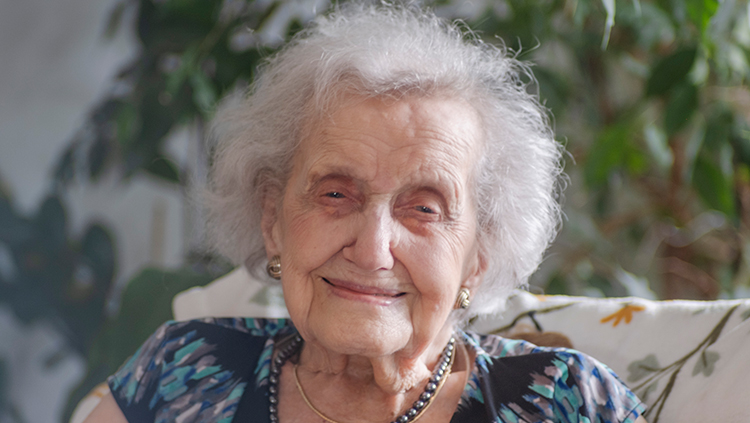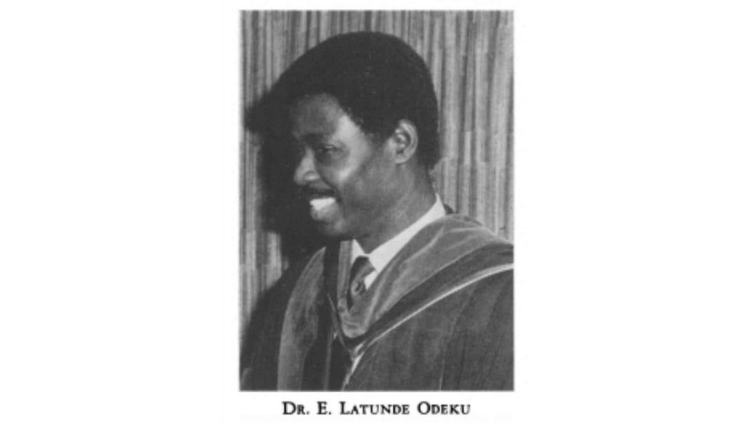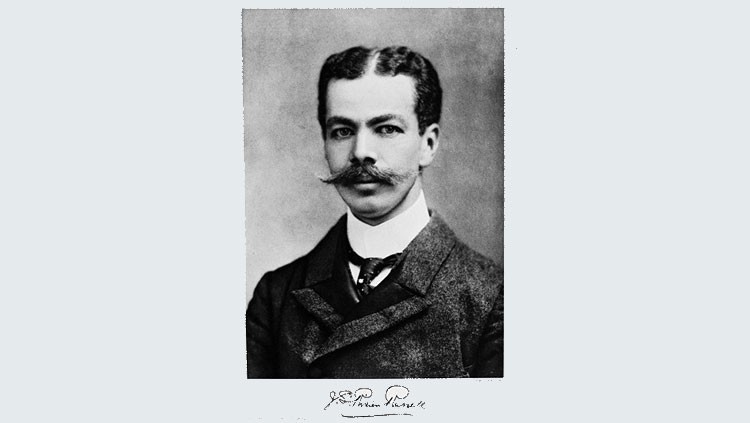How a Favorite TV Show Led to a Neuroscience Career
- Published6 Apr 2023
- Author Christine Won
- Source BrainFacts/SfN
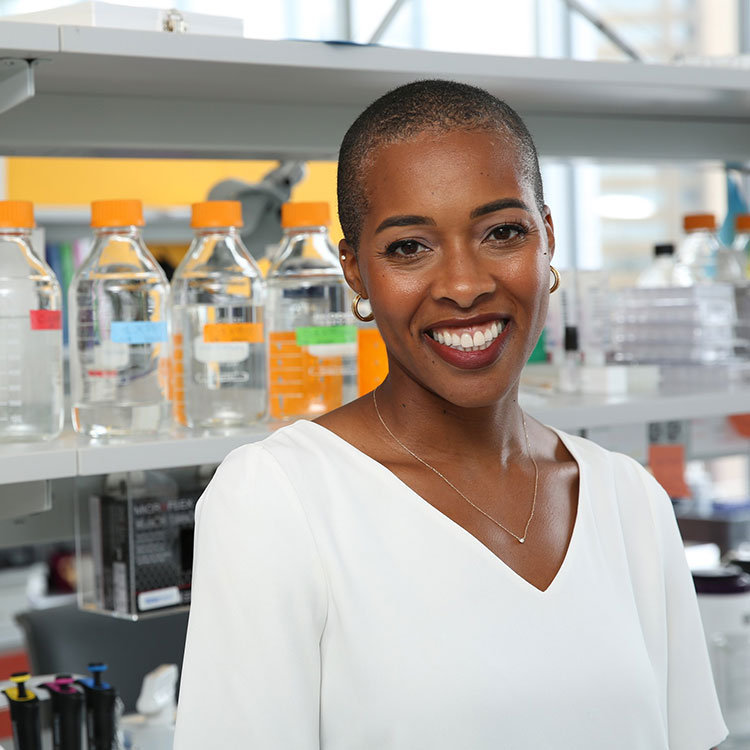
As a child, "The Crocodile Hunter" was Bianca Jones Marlin's favorite show. Show hosts Steve and Terri Irwin’s adventures inspired her and her foster siblings' childhood forays into their own backyard to catch frogs, snakes, and turtles to observe what they ate and how they behaved. The experience nurtured her love of science and her fascination with biology and social interaction.
Now a neuroscientist and the Herbert and Florence Irving Assistant Professor of Cell Research at the Zuckerman Institute at Columbia University, Marlin’s lab focuses on the parental brain and transgenerational epigenetic inheritance, investigating how parents' experiences can pass on to future generations to promote survival.
Marlin spoke with BrainFacts.org about her lab’s work.
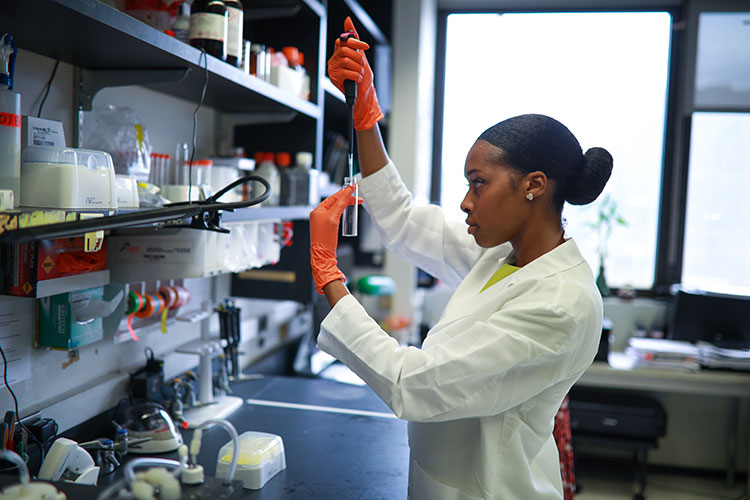
Q: What research are you involved in now?
One part of my lab explores the parental brain as it prepares to take care of offspring and promote their success and survival. Another part of the lab is looking at how biological responses to an experience in a parent can live on in kids and grandkids to promote survival. This is called transgenerational epigenetic inheritance (TEI). TEI, which can cause changes in the brain, suggests a means by which parents could unknowingly, but adaptively, prepare their future offspring for the world.
Q: What were some of your findings?
My doctoral studies showed that the neuromodulator oxytocin (a hormone involved in labor and lactation, as well as social behavior and bonding) changes the way hearing centers of the brain operate in female mice reacting to pups (baby mice). We found that virgin mice (mice that have never given birth) usually ignore a pup crying or will sometimes even cannibalize it, as their neurons did not fire in a manner that encoded a message in the hearing centers of their brains. On the other hand, in mothers (who would take care of the pups and bring it back to the nest), we identified neurons that are actively encoding a message in the hearing centers.
We showed that oxytocin is what makes the difference: It transforms a virgin mouse brain into a mom brain. Adding oxytocin to a virgin mouse brain changed the way it encoded the babies’ cries in their hearing centers. What we see is that there is an oxytocin receptor in the hearing centers and also that it’s on the left side, which is really exciting because in mammals and in humans at least, that’s where our area of communication is – our Broca’s and Wernicke’s areas of expression and communication.
The way the neurons fire seems to be directly correlated with the way the animal behaves. When neurons fire a more encoded message, the animal is more likely to take care of the pup. When the neurons are not firing and not encoding (like in a virgin mouse), the animals will ignore the pup or cannibalize it. This shows oxytocin is aiding in the process of survival. There may be other neuromodulators as well. We aren’t saying oxytocin is a wonder hormone, and you can take it and you’ll become a great mom – we want to understand the biological mechanism surrounding it. But it's a step in the right direction.
Q: What about dads and the paternal brain?
With paternal brains, we're really focusing on how paternal experience is going to change the brain and body of the offspring. We track if TEI is occurring across males (from father to son to grandson) because sperm is constantly turning over. That means if we see an inherited TEI change in the offspring, we know that it was inherited from an experience during the parent’s lifetime. Since females are born with all of their eggs, we would not be able to be certain that the daughter was not going to be born with this adaptation regardless of the parent’s experience. But in our male mice, we can see adapted sperm in offspring that they were not born with and therefore know that the adaptation was a result of a change in the genes from their parent’s experience.
Q: What are some implications of your research for humans and the public?
I'm not looking to translate that into human care. I think it’s very important to understand that there are different types of scientists; from translational scientists to basic researchers like us, and who are theoretical scientists, and we each play a role. That is why we all work together and why diversity of thought is so important. It’s important to honor each one of those spaces. We as basic researchers are exploring parts of biology that will inform translational biologists so that they can take the necessary steps to bring this to the clinic and to the world.
This interview has been edited for length and clarity.
CONTENT PROVIDED BY
BrainFacts/SfN
Also In Meet the Researcher
Trending
Popular articles on BrainFacts.org






